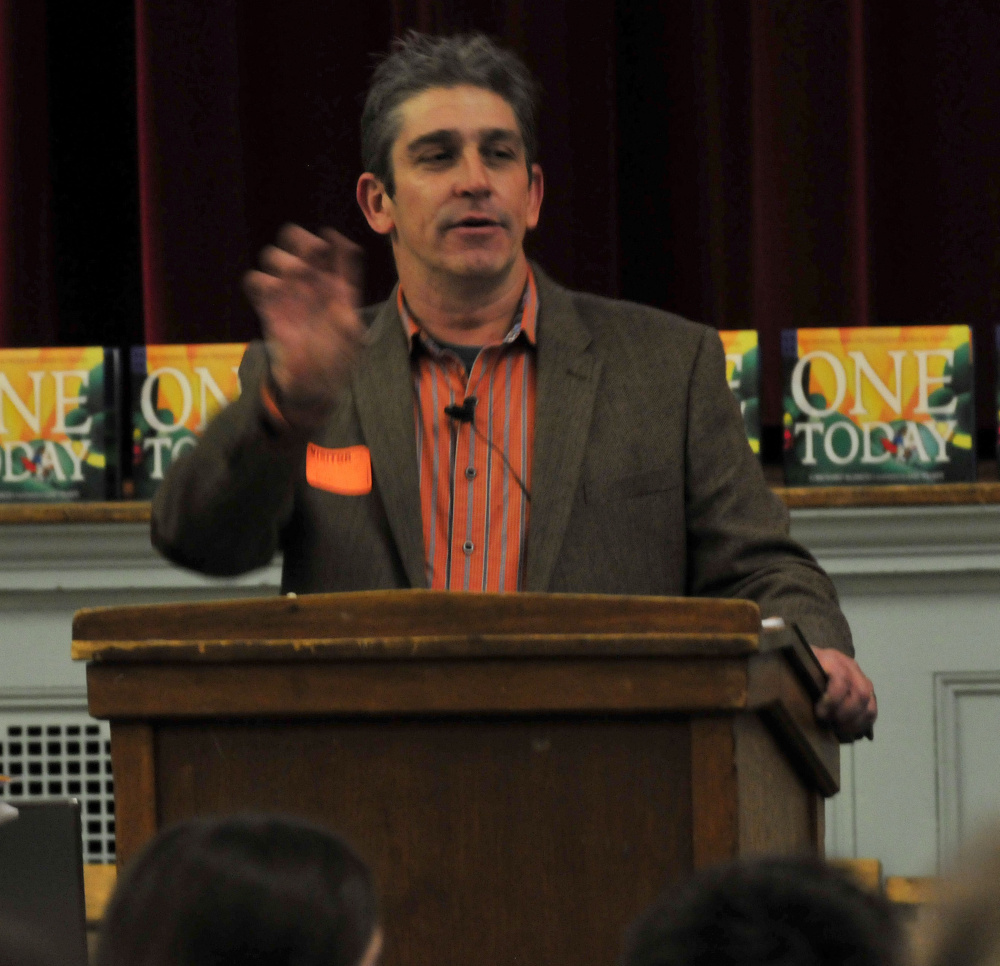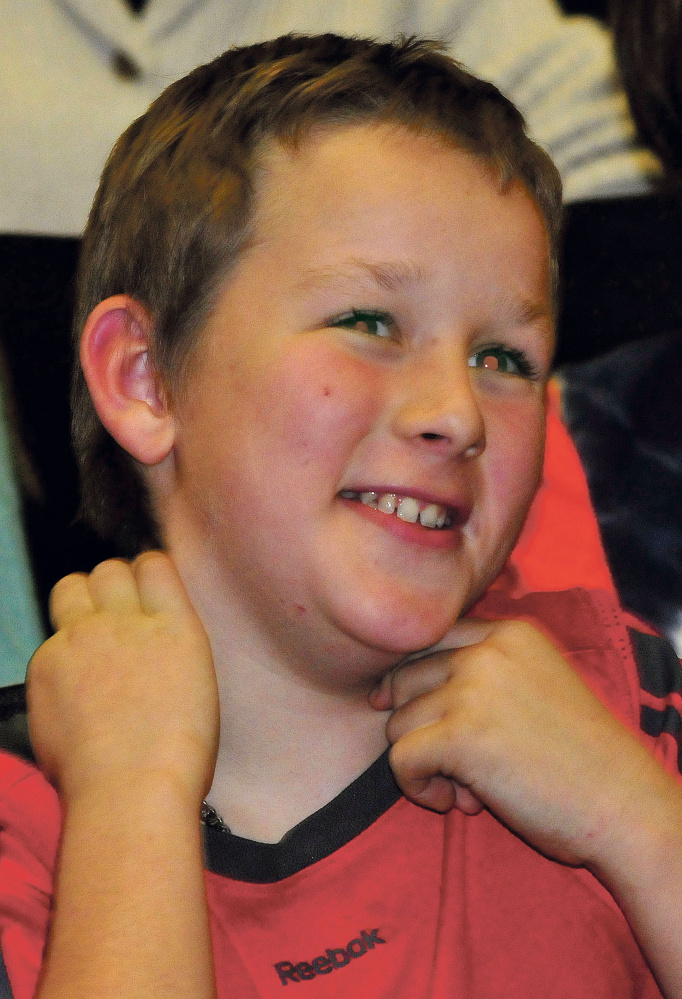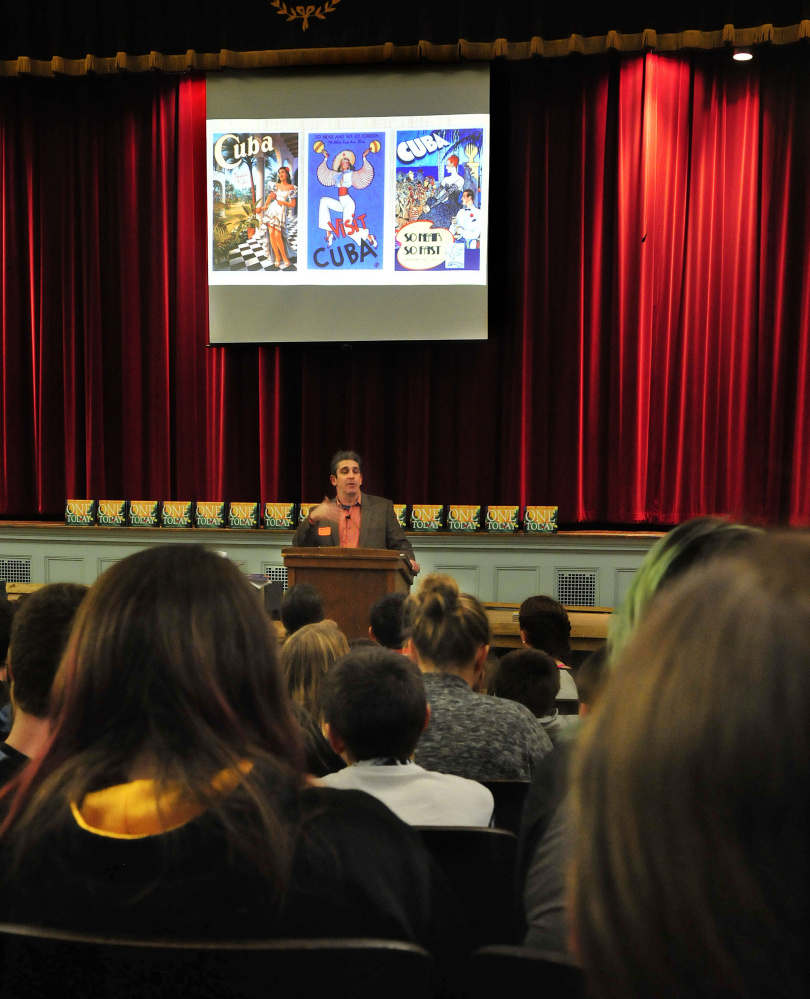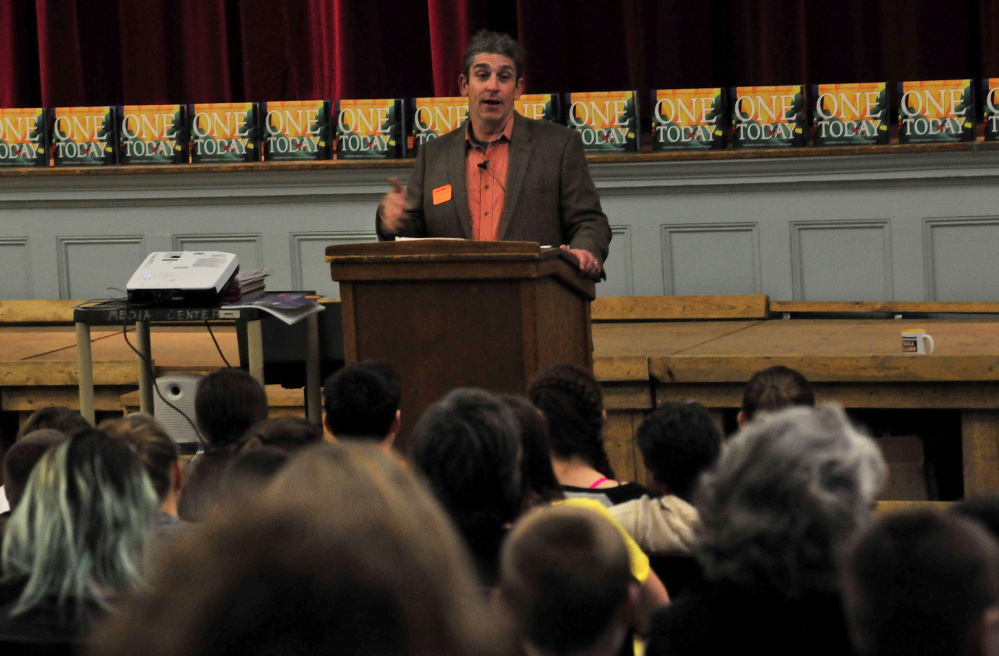WINSLOW — Standing in front of a couple hundred middle and high school students, Richard Blanco, a Maine resident and presidential inauguration poet, reminded the audience that despite what they might think now, writing probably will be a huge part of their professional lives.
He should know, Blanco said. Before he rose to prominence as a popular American writer and poet, Blanco was, and still is, a civil engineer. He started writing poetry when he was in his 20s as a way to explore his creativity, Blanco said. However, he added, writing made up 70 percent of his professional job.
“No knowledge you learn is ever wasted,” Blanco said. Whatever students learn in school and afterward will translate into what they choose to do as a profession, he added.
“I find I’m a better engineer because I am a poet, and I’m a better poet because I’m an engineer,” he said.
Blanco had stopped by Winslow Junior High School on Tuesday afternoon before an evening reading at the Waterville Opera House.
Winslow High School seniors Alex Lopes and Nick Gurney, who came to the assembly with their creative writing class, didn’t recall Blanco speaking at the inauguration ceremony in 2013, but they said they liked his delivery.
“He was able to relate it to everyone,” Nick Gurney said. “Everyone can write about their childhood because everyone had one.”
Lopes said she is interested in writing opinion pieces and essays. She is impressed that Blanco wasn’t just a poet and writer.
“I like that he had a different career,” Lopes said.
Blanco grew up in Miami, the son of Cuban immigrants. His neighborhood was a tight-knit community of exiles from communist Cuba, and for most of his childhood, he felt as though he wasn’t living in the real America, epitomized by the 1970s sitcom “The Brady Bunch.”
“America felt like this other place we weren’t quite part of yet,” he said.
One of the poems he wrote for the inauguration was about his mother’s experience of leaving Cuba.
He asked students to imagine what it would be like to be forced to pack a suitcase and get on an airplane, knowing they were leaving behind their entire lives — and how that experience would affect how they felt about their country.
His mother’s feeling of displacement and resettlement is summed up in the final line of the poem:
“It is not where you are born that matters; it is where you choose to die,” Blanco read.
That feeling of being apart from his own country persisted into adulthood. When he moved to Connecticut for his first job outside of Florida, he imagined that he would be moving to a picture-perfect image of small town America. His experience there quickly broke that fantasy, Blanco said.
He traveled and lived in Europe before returning to Miami and eventually settling down in Bethel, where he now lives.
Although many wondered why he would trade Miami for a village in the western Maine mountains, Blanco said he felt comfortable, because Bethel had the same close community feel he grew up with.
Stepping aside from describing his personal history, Blanco delved into the creative process and how he approaches writing poetry.
As a writer, he tries to evoke the five senses — smell, taste, touch, sight and sound, Blanco told the audience.
“There is no other way to engage with the world. It is just that simple,” Blanco said. Splitting the students in auditorium into three groups, he asked them to recall what kind of senses came to mind from his poem “Looking for the Gulf Motel,” about his memories of a Marco Island, Florida, beach hotel his family went to when he was a child.
Students called out sights, such as a sunset over the beach, the smell of garlic and pork and the sound of ice cubes tinkling in a glass or kids playing in a swimming pool.
“As a writer, I am selecting those images, those sensory details, to set a mood for you,” Blanco said.
Three weeks before the 2013 inauguration, Blanco got a phone call from the White House, asking him to produce three poems, one of which would be read at the swearing-in ceremony in front of a million people.
Responding to a question from a student, Blanco said he thought immediately about his parents and grandparents and how their experiences had helped bring him to that point.
His poem “One Today” was written with an eye toward the attributes of the United States that makes the country at the same time strongly individual and bound together in unity. While he was waiting to walk up to the lectern and deliver his poem, Blanco recalled that he finally felt a sense of belonging.
“It was really the sense that I was home all along,” he told the audience. “That I was part of the American story, and I had foolishly believed that I wasn’t.”
Peter McGuire — 861-9239
Send questions/comments to the editors.







Comments are no longer available on this story